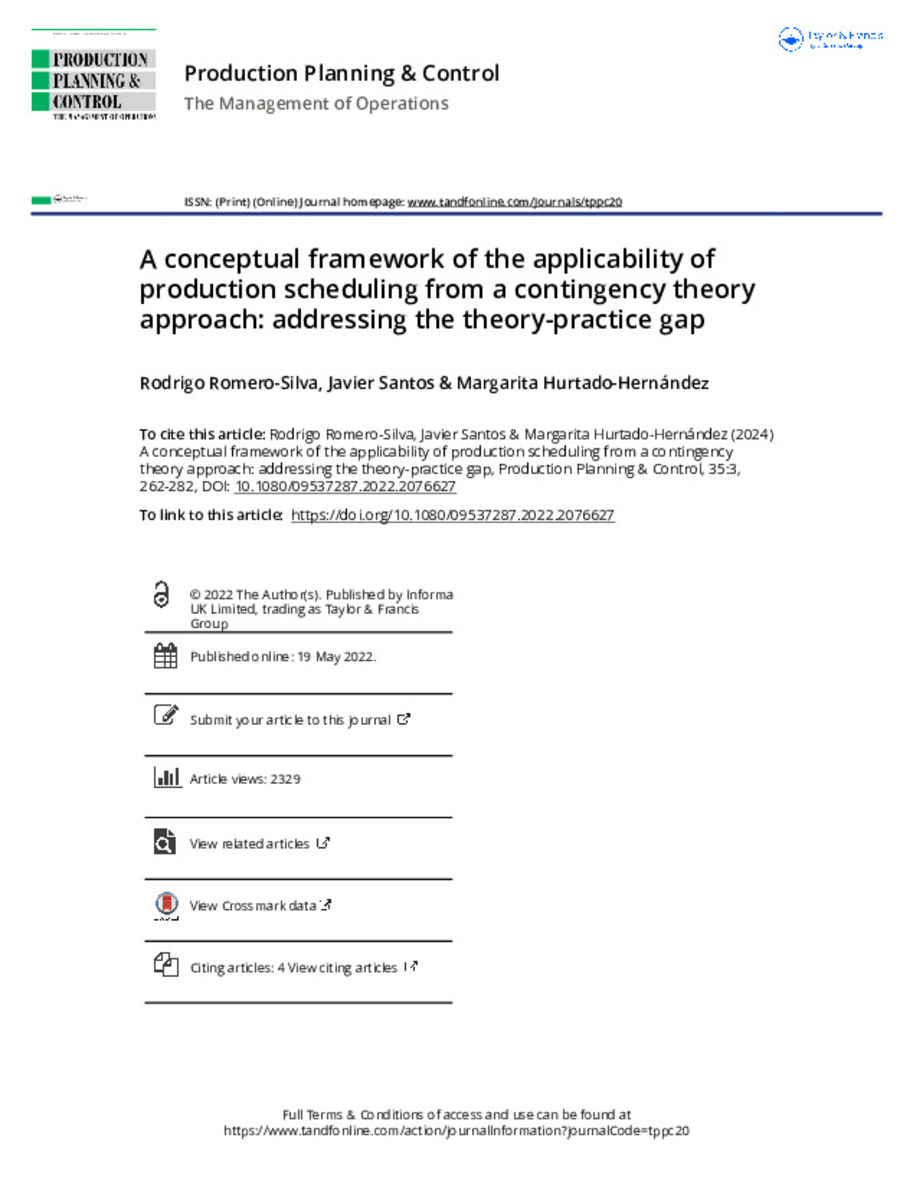A conceptual framework of the applicability of production scheduling from a contingency theory approach: addressing the theory-practice gap
Keywords:
Área Ingeniería Eléctrica, Electrónica y Automática
Scheduling theory.
Conceptual framework.
Fit.
Proactive-reactive scheduling.
Theory-practice gap.
Simulation optimization approach.
Dispatching ruesl.
Decision-support.
Manufacturing systems.
Mass customization.
Parallel machines.
Implementation.
Flowshop.
Performance.
Management
Editorial note:
This is an Open Access article distributed under the terms of the Creative Commons Attribution-No Commercial-No Derivatives License (http://creativecommons.org/licenses/by-nc-nd/4.0/)
Citation:
Romero-Silva, R.; Santos-García, J. (Javier); Hurtado-Hernández, M.. "A conceptual framework of the applicability of production scheduling from a contingency theory approach: addressing the theory-practice gap". Productios planning and control. 35 (3), 2023, 262 - 282
Statistics and impact
0 citas en

Items in Dadun are protected by copyright, with all rights reserved, unless otherwise indicated.







